Galveston residents likely assume that in any situation where they suffer an injury on another’s property, liability for such an incident lies with the property owner. Such is the foundation of premises liability law. However, oftentimes assigning such liability is not so cut-and-dry.
Many come to the team here at The Hodge Law Firm, PLLC with the aforementioned assumption. They then find themselves surprised to learn that a property owner’s responsibility for accident expenses under premises liability law depends on the visitor classification of the person injured on their land.
Differentiating invitees, licensees and trespassers in Texas
The law formally recognizes the following three distinct types of visitors to a property:
- Invitees
- Licensees
- Trespassers
State Supreme Court rulings establish the criteria for defining these visitor types. Per precedent, an invitee is one that a property owner expressly implicitly invites onto their property. A licensee is one that comes onto the property without the owner’s invitation but with their implicit permission. A trespasser is one entering onto a property without permission or an invitation.
In most cases, a property owner must exercise due diligence in protecting invitees and licensees from any potential hazards on their land. The only duty of care owed to trespassers is for the property owners not to purposely cause them harm.
Proving a premises liability case
However, simply suffering an injury on another’s property may not necessarily invoke premises liability. Indeed, according to the Texas A&M AgriLife Extension office, one must first prove that the property owner knew of the condition that caused their accident, that one might reasonably foresee the dangers it presents, and that even knowing this, they did not exercise due diligence in protecting others from it.

